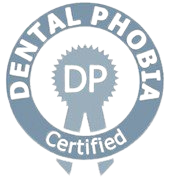How long does dentist numbing last? A helpful guide for patients
If you’ve ever had a filling, tooth extraction or root canal, you’ve likely experienced dental anaesthesia. For many patients, one of the most common questions is: how long does dentist numbing last?
At Smile Perfections Dental Practice in Leicester, we understand that knowing what to expect after a procedure can help you feel more at ease. Whether you’re having a routine dental check-up that leads to further treatment, or you’re visiting us for tooth extraction or root canal therapy, this guide will give you a clear understanding of how dental numbing works — and how long it typically lasts.

Why do dentists use local anaesthetic?
Local anaesthetic is used to numb a specific area of the mouth, allowing the dentist to carry out procedures without causing pain. It works by temporarily blocking the nerves in that area from sending pain signals to the brain.
Most commonly, we use it for:
- Fillings
- Extractions
- Root canal treatment
- Deep cleaning or scaling
- Treating sensitive teeth
The anaesthetic is usually injected near the tooth being treated, and within minutes the area becomes numb.
So, how long does dentist numbing last?
The numbness caused by dental anaesthetic can vary depending on a few factors, including the type of anaesthetic used, the location of the injection, and your individual response.
On average:
- Numbing typically lasts between 2 to 4 hours for most routine dental treatments.
- The lips, cheeks and tongue may remain numb for a little longer — sometimes up to 5 hours.
If you’re asking, how long does dentist numbing last UK, this is a good estimate. Dentists across the UK generally use similar types of local anaesthetics, and the effects are consistent from person to person, with some variation.
You can read more on dental anaesthesia from NHS UK, which outlines the general effects and safety of local numbing used in dentistry.
Factors that affect how long the numbness lasts
1. Type of treatment
More complex procedures (like root canals) may require a stronger or longer-lasting anaesthetic compared to a small filling.
2. Injection site
Upper teeth: anaesthetic often wears off more quickly (1.5 to 2 hours).
Lower teeth: especially molars, may remain numb longer due to deeper nerves.
3. Your metabolism
Everyone’s body processes anaesthesia at different speeds. Younger people and those with faster metabolisms may regain feeling quicker.
4.Use of adrenaline
Some anaesthetics include a small amount of adrenaline to prolong the effect and reduce bleeding. This can make the numbness last longer.
How long does numbness last after dentist?
If you’re asking, how long does numbness last after dentist, here’s a quick breakdown:
Typical numbness duration by procedure
| Procedure | Expected numbness duration |
|---|---|
| Small filling | 1–2 hours |
| Large filling | 2–3 hours |
| Tooth extraction | 2–4 hours |
| Root canal | 3–5 hours |
| Deep cleaning | 1.5–3 hours |
It’s not unusual to feel tingling or “pins and needles” as the numbness wears off — this is your body naturally metabolising the anaesthetic.
How long for dentist numbing to wear off?
The answer to how long for dentist numbing to wear off is usually between two to five hours, depending on the factors above. However, if you’re still feeling numb after six hours, it’s a good idea to contact your dentist for advice.
It’s rare, but prolonged numbness can sometimes be caused by:
- The anaesthetic affecting a nerve more deeply than expected
- Swelling or inflammation in the area
- Individual nerve sensitivity
We always monitor for these issues, and most patients regain full sensation without any problems.
Tips for managing numbness after treatment
While you wait for the numbness to wear off, here are a few simple tips:
- Avoid hot drinks – You could burn your mouth without realising it.
- Don’t chew on the numb side – You might bite your cheek or tongue accidentally.
- Stay hydrated – Drink cool water to help flush the anaesthetic from your system.
- Take it easy – If you’ve had an extraction, avoid strenuous activity for a few hours.
If you’re unsure whether what you’re feeling is normal, our team at Smile Perfections is here to help. We’re happy to answer questions by phone or in person.
When to call your dentist
If numbness hasn’t resolved after 6–8 hours or if you’re experiencing:
- Pain
- Swelling
- Signs of infection
- Difficulty speaking or swallowing
Please don’t hesitate to book an emergency appointment or give us a call. While it’s rare, lingering numbness should always be checked by a professional.
Final thoughts
Understanding how long does dentist numbing last can help you plan your day and avoid unnecessary worry. While the feeling of numbness can be unusual, it’s a sign that your treatment has been carried out with your comfort in mind.
At Smile Perfections Dental Practice, we take every step to ensure your care is safe, gentle, and personalised. Whether you’re a new patient or returning for ongoing treatment, our experienced team is here to support you at every stage — from routine check-ups to complex procedures.
📞 Got a question or need to book an appointment? Contact Smile Perfections today — we’re here to help you feel confident and informed about your dental care.
Frequently asked questions
Most people find that numbness wears off within 2 to 3 hours after a filling. You can eat or drink as normal once sensation returns.
For a routine extraction in the UK, numbing generally lasts around 3 to 4 hours. It can be slightly longer if deeper nerves were involved.
Gently massaging your cheek, staying active, and drinking plenty of water may help your body process the anaesthetic faster. However, it’s best to wait for it to wear off naturally.
In some cases, especially with lower molars, it can take up to 5 hours for sensation to return. If it’s been longer than 6 hours, call your dentist.
Yes — as long as you haven’t been given sedation, it’s safe to drive after receiving local anaesthetic. You’ll be fully alert, even if part of your mouth is still numb.












